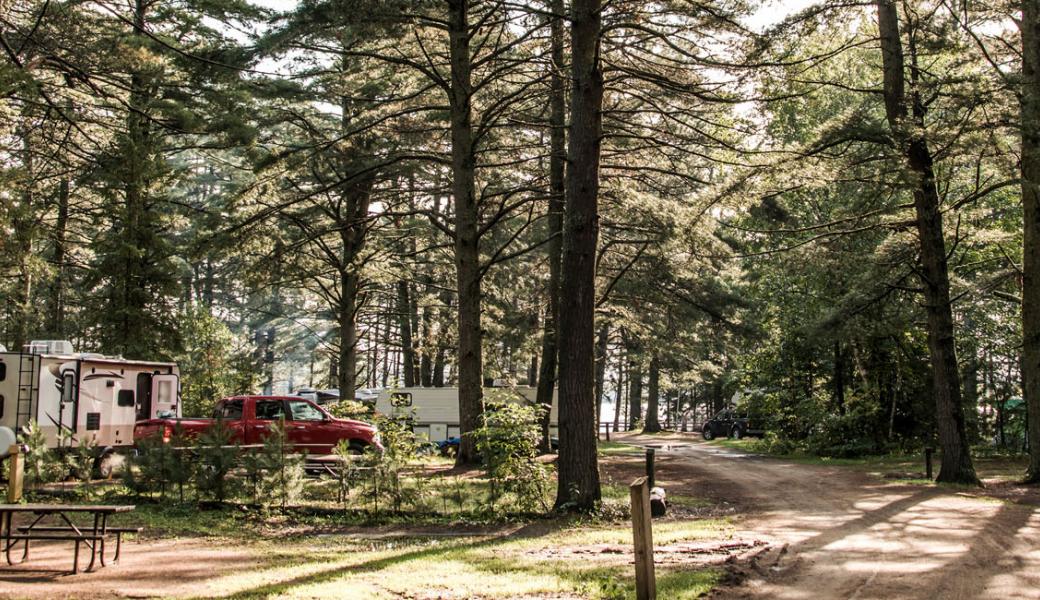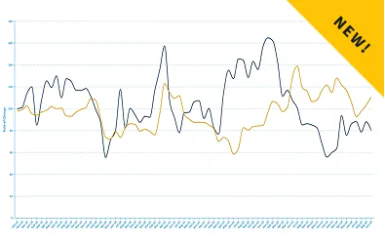Families Save Money When Owning, Using RVs Compared To Other Types Of Vacations

A new study conducted by CBRE Hotels Advisory Group has found that RV vacations cost much less than other types of vacation travel, even when factoring in fuel prices and the cost of RV ownership. According to the study, commissioned by Go RVing and the RV Industry Association, there are cost savings of 21-64% for a four-person travel party, while a two-person travel party saves 8-53%, depending on factors such as the type of RV and type of vacation.
For the most common type of RV, the lightweight travel trailer, the average cost per day of the 4-person camping vacation was found to be about 31 percent less expensive than the average daily cost of comparable 4-person car/hotel combination vacations and about 50 percent less than the average daily cost of a comparable 4-person air/hotel vacation.
“The study reaffirms that RVs are a great way to save on family travel, and it’s equally important to remember that RV ownership provides benefits that go well beyond affordability,” said RV Industry Association president Frank Hugelmeyer. “To take an RV trip is to experience togetherness with family and friends, along with the flexibility to travel whenever and wherever you want.”
The CBRE study analyzes vacation costs using two sets of hypothetical travel groups: a four-person travel party of two adults and two children, and a two-person travel party of two adults. CBRE analyzed major costs these hypothetical travelers incur traveling to nine popular vacation destinations. For each destination, researchers analyzed vacations lasting 3, 7 and 14 days.
The study compared different methods of travel, including a folding camping trailer; a lightweight travel trailer; a compact motorhome; a type C motorhome; a type A motorhome; traveling in a personal car, staying at hotels/motels, and eating meals in a restaurant; traveling by airline, renting a car at the destination, staying at hotels/motels, and eating meals in restaurants; and traveling in a personal car or airline (as appropriate), staying at a rental house/condominium, and eating the majority of meals in the rental unit. The type A motorhome, typically the largest and most luxurious RV, was compared to travel options such as flying first class, renting a premium car, staying in upscale hotels/resorts, and eating meals in restaurants.
RV vacations show a clear family budget benefit over other forms of travel, regardless of the RV type. According to the CBRE study, a four-person travel party can expect to save (by unit type):
- Folding camping trailer: 50-64%
- Lightweight travel trailer: 31-50%
- Compact motorhome: 31-50%
- Type C motorhome: 21-43%
- Type A motorhome – 41%
A two-person travel party saved, according to the CBRE analysis:
- Folding camping trailer: 43-53%
- Lightweight travel trailer: 20-34%
- Compact motorhome: 20-34%
- Type C motorhome: 8-24%
- Type A motorhome – 19%
The study included analysis of how fluctuations in fuel prices could affect the economic advantages of RV travel. Researchers found that for a four-person travel party it would take a rise in fuel prices to nearly $13 per gallon for a Type C motorhome vacation to more expensive than the least expensive non-RV vacation. None of the fuel increase scenarios for a four-person travel party resulted in other RV vacation types being more expensive than the least expensive non-RV vacation.
For a two-person travel party, fuel prices would still need to rise significantly (from $5.50 to more than $13 per gallon) from current levels for RVing to lose its economic advantage.
“While fuel costs are a component of the overall vacation cost, it isn’t significant enough to materially affect the outcome of our analysis,” said Kannan Sankaran, managing director of CBRE’s Advisory Services, and lead researcher.
Research by Go RVing and the RV Industry Association shows that when fuel prices are higher, RVers save on fuel costs by driving fewer miles, taking trips closer to home, and staying longer in one destination.
CBRE Hotels Advisory was commissioned by Go RVing to provide an objective comparison between the cost of a summer vacation using recreation vehicles (RVs) and the cost of other types of vacations during that same timeframe. CBRE factored in an estimated cost of ownership of the applicable RV equipment that was based upon published data regarding average ownership periods, residual values, annual days of utilization, insurance, and other costs of ownership, as well as any applicable tax benefits.
Please Sign in to View
Log in to view member-only content.
If you believe you are receiving this message in error contact us at memberservices@rvia.org.

